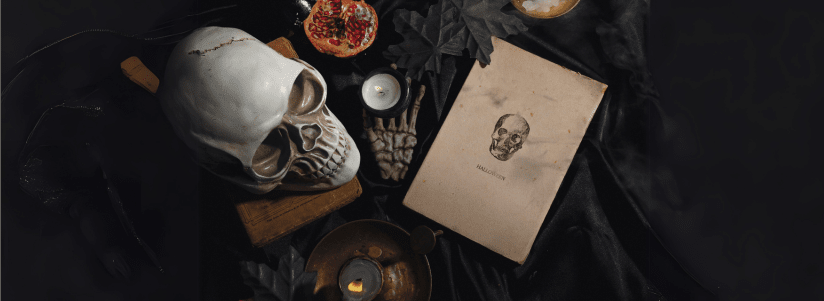

Every year, as October draws near, we dust off our spookiest decorations, carve grinning jack-o'-lanterns, and select the perfect costumes, all in the name of Halloween. But how did this beloved holiday, a night of frights and delights, come to be what it is today? The history of Halloween is a captivating tale that weaves together ancient traditions, religious influences, and a dash of modern commercialization. In this blog, we'll embark on a journey through the centuries to uncover the roots of Halloween and trace its evolution into the festive, candy-filled celebration we know and love today.
Ancient Beginnings: Samhain
The story of Halloween begins with the ancient Celtic festival of Samhain (pronounced "sow-in"), celebrated around November 1st. Samhain marked the end of the harvest season and the beginning of winter, a time often associated with death. Celts believed that on the night before Samhain, the boundary between the living and the dead blurred, allowing spirits to return to Earth.

Roman Influence: Pomona and Feralia
When the Romans conquered Celtic territories, they introduced elements of their own festivals into Samhain. One such influence was the celebration of Pomona, the Roman goddess of fruit and trees, whose symbol was an apple. This is thought to have contributed to the tradition of apple bobbing, a popular Halloween game.
Additionally, the Roman festival of Feralia, which honored the dead, aligned closely with Samhain's spiritual themes, further blending the two cultures' beliefs.

Christianity and All Saints' Day
In the 7th century, the Christian church sought to supplant pagan festivals with their own, more religious observances. Pope Boniface IV declared May 13th as All Saints' Day, a day to honor saints and martyrs. However, in the 9th century, the church moved All Saints' Day to November 1st, possibly to Christianize Samhain. The evening before became known as All Hallows' Eve, eventually shortened to Halloween.

Medieval Celebrations: Soul Cakes and Costumes
During the Middle Ages, Halloween evolved with the incorporation of practices such as "souling" and "guising." On All Souls' Day, people would go "souling" by visiting homes and receiving soul cakes in exchange for prayers for the deceased. This tradition laid the foundation for modern-day trick-or-treating.
The concept of "guising" emerged as well, where people would dress in costumes to disguise themselves from malevolent spirits. This notion eventually evolved into the Halloween costume parties we know today.

American Halloween: Blending Old and New
Halloween found its way to North America with Irish and Scottish immigrants, who brought their customs to the New World. Over time, these traditions blended with those of Native American and European immigrants, creating a distinctly American version of Halloween.
By the late 19th century, Halloween had become a community-centered holiday marked by games, food, and festive gatherings.

Commercialization and Modern Halloween
The 20th century saw the commercialization of Halloween, with the sale of costumes and decorations becoming big business. The holiday also became more child-centered, emphasizing fun and treats over religious or spiritual elements.
Today, Halloween is a beloved and diverse celebration, with people of all ages donning costumes, carving pumpkins, and enjoying spooky stories and movies. It's a night of delightful frights, community spirit, and a nod to the ancient traditions that continue to shape our modern festivities.

Halloween's journey from the ancient Celtic festival of Samhain to the festive, candy-filled celebration we enjoy today is a testament to the enduring power of tradition and human creativity. As we prepare to celebrate this haunted holiday, let's remember the centuries of history and the diverse cultural influences that have shaped Halloween into the beloved and uniquely enchanting celebration it is today.
